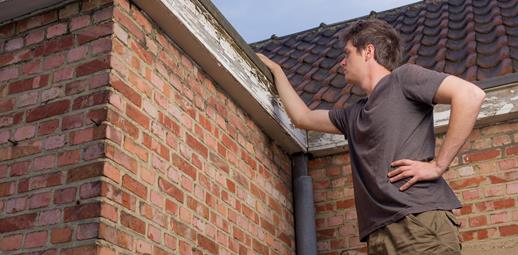
Whether you are a homeowner or a tenant, you may need some form of home insurance to ensure your home and its contents are protected. So how do you go about finding the right policy? And what can you do to reduce the odds of needing to make a claim?
The different types of home insurance
The first thing to bear in mind is that home insurance refers to two different types of cover. There’s buildings insurance, which protects the structure of your property itself[1], such as your walls, floors or permanent fixtures and fittings, and then there is contents insurance, which covers the belongings you keep inside the property[2]. Most insurers will offer the option of purchasing combined buildings and contents cover.
While contents insurance isn’t a requirement, it’s good to have it in place if you’d like to protect the contents in your home, such as your furniture or your appliances[3]. If you are a homeowner, getting buildings insurance is usually a condition that applies to the mortgage[1]. If you are a tenant, then it is up to the landlord to set up a buildings insurance policy[4].
How much cover do I need?
Getting the right amount of cover is important. If you make a claim and the insurer determines that you had too little insurance in place, then they may void the policy entirely, leaving you to cover the costs alone. On the other hand, if you overestimate the amount of cover you need, you could end up paying more than you need to for your insurance.
When arranging buildings insurance, the cover you need isn’t related to the value of the property, but rather to how much it would cost to rebuild it[5]. The Royal Institution of Chartered Surveyors offers a Building Cost Information Service, which can help calculate this.
When it comes to calculating your contents insurance cover, it’s worth going through each room in your home and adding up how much it would cost you to replace everything in there.
Pick the right excess
An important consideration for anyone taking out a home insurance policy is the excess. This is the amount that you agree to pay towards any claim you make. For example, if you set the excess at £200 and then make a claim for £5,000 of repairs, you are committed to paying that first £200 of the repair bill.
The higher you set the excess, the lower the insurance premium is likely to be. But it’s important that you don’t overextend yourself by setting the excess at a level you would not be able to pay if you need to make a claim in the future.
Look after your home
It’s important to remember that with buildings insurance the policy is only offered on the condition that the property is maintained regularly[6].
That means things like checking over the quality of your roof every year or so, replacing any locks that break on your windows and doors, clearing out your drains and gutters and acting swiftly if any issues appear.
This isn’t just about keeping your policy in place, though. Regular home maintenance will help protect your home against issues like damp and flooding, and therefore reduce the chances of you needing to make a claim.
Improve your home’s security
Taking steps to improve your home’s security can also help you to avoid needing to make a claim for any damage or theft caused by a break-in[7].
This can include anything from getting more robust locks to installing a burglar alarm or some form of smart security device.
Avoid accidental damage
Accidental damage is a common reason for making a claim on a home insurance policy. Although some accidents can be unforeseeable, there are still some things you can do to help prevent them. For example, if you have small children running around, then ensuring there is nothing valuable for them to crash into is a sensible step.
DIY mishaps can also cause damage to your home, so if you don’t have the technical skills needed for the job you have planned, it’s a good idea to get a professional to do it for you.
Keeping water where it should be
Another common cause for home insurance claims is escape of water[8], whether that’s from your pipes or your water tanks.
This is particularly relevant during the winter months, when the cold and stormy weather can lead to a jump in these types of claims. There are plenty of simple steps you can follow to reduce the chances of a water issue, such as insulating your water tanks, fixing any dripping taps and getting your boiler serviced regularly.
For more advice on home insurance and how to maintain your home, go to Solved.
- [1] https://www.citizensadvice.org.uk/consumer/insurance/insurance/types-of-insurance/buildings-insurance/
- [2] https://www.citizensadvice.org.uk/consumer/insurance/insurance/types-of-insurance/household-contents-insurance/
- [3] https://www.moneyadviceservice.org.uk/en/articles/do-you-need-contents-insurance
- [4] https://www.moneyadviceservice.org.uk/en/articles/do-you-need-buildings-insurance
- [5] https://www.abi.org.uk/products-and-issues/choosing-the-right-insurance/home-insurance/buildings-insurance/calculating-your-rebuild-cost/
- [6]https://www.abi.org.uk/globalassets/sitecore/files/documents/publications/public/migrated/home/common-questions-about-home-insurance.pdf
- [7] https://thecrimepreventionwebsite.com/home-security-assessment/470/burglary-risk/
- [8] https://www.abi.org.uk/products-and-issues/choosing-the-right-insurance/home-insurance/burst-pipes-and-water-leaks/


